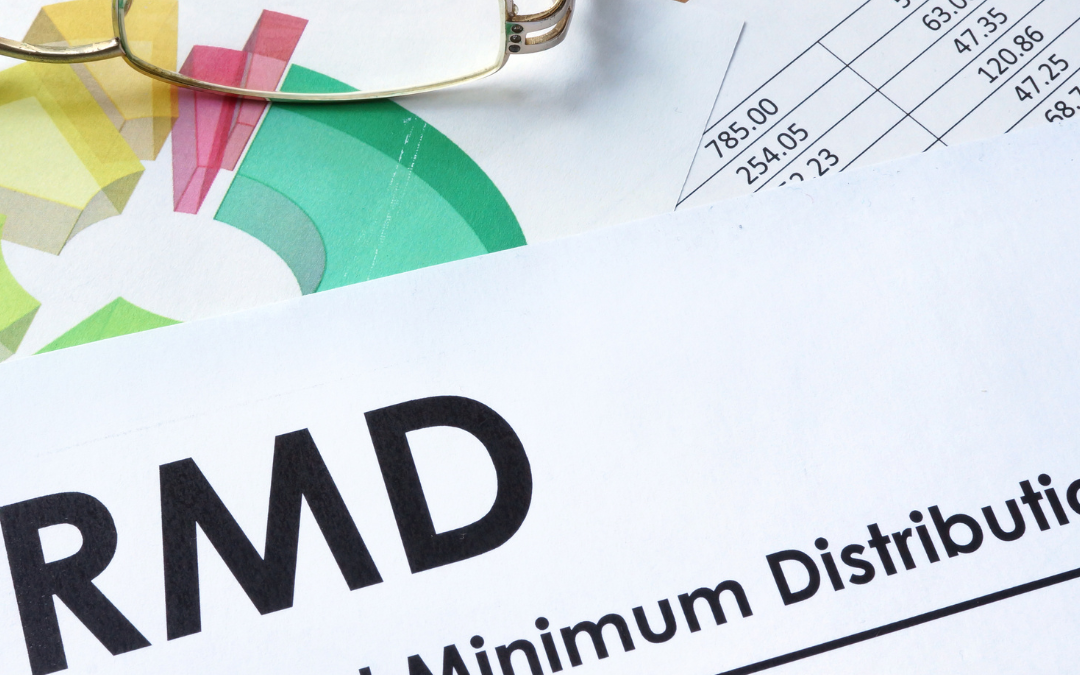Understanding mandatory retirement account withdrawals.
Provided by Brower Financial Group
If you are approaching your seventies, get ready for required minimum distributions. You may soon have to take RMDs, as they are called, from one or more of your retirement accounts.
You can now take some RMDs a bit later in life, which is good. Recent rule changes give your invested savings a little more time to potentially grow in your retirement savings vehicles before that first required drawdown.
What account types require RMDs?
Any retirement plan sponsored by an employer, plus traditional Individual Retirement Arrangements (IRAs) and IRA-based retirement plans, such as SIMPLE IRAs and Simplified Employee Pension plans (SEPs). Original owners of Roth IRAs do not have to take RMDs.1
You can take your initial RMD from a retirement plan by December 31 of the calendar year in which you turn 72. You actually have the choice of taking that first annual RMD as late as April 1 of the following year, i.e., the year in which you will turn 73, but you’ll have to take your second RMD by December 31 of that same year. So if you wait 16 months to take your first RMD, you will end up taking both your first and second RMDs from that account in the same year – and since each RMD represents taxable income, that could lead to higher-than-anticipated tax bill for that year.1
How are RMDs calculated?
The Internal Revenue Service provides calculation formulas in Publication 590-B. Commonly, you calculate your yearly RMD by dividing the balance of your retirement account on December 31 of the previous year by a life expectancy factor, a number you take from tables published within Publication 590-B.1
If you have multiple retirement accounts (as many of us do), each one will require an annual RMD calculation. If you own multiple traditional IRAs, you have the choice to calculate RMDs for each of those IRAs and take the combined RMD amounts for all three IRAs from just one of those IRAs. You have the same choice if you have multiple 403(b) plan accounts.1
What do you need to do to avoid penalties with RMDs?
The most important thing to do is to take them by the annual December 31 deadline. The second most important thing to do is to withdraw the right amount.
If you take an RMD after the December 31 deadline or withdraw less than you should, a penalty may apply. The I.R.S. may levy as much as a 50% tax on the amount not withdrawn.1
The good news is some investment firms will update you on your upcoming RMDs well in advance of annual deadlines, and your RMDs may even be calculated for you. This is not a given, however, and even when you receive such information, you must act on it, because it takes time to authorize and execute the RMD.
Lastly, take a look at how the RMD income may affect your taxes.
There are ways to manage the tax impact of RMDs, and you can explore those choices with a financial or tax professional.
About Brower Financial Group
Sound financial planning you can count on.
An organization is only as strong as its roots. For six generations, our families’ Florida roots have guided our approach to life and community service. As a financial partner to hundreds of families and organizations for more than 25 years, we understand what is most important to you.
Brower Financial Group is a premier financial planning firm located in Ponte Vedra Beach, FL serving all of Jacksonville, The Beaches and Ponte Vedra.
Securities offered through JW Cole Financial, Inc. (JWC), Member FINRA/SIPC Advisory Services offered through J.W. Cole Advisors, Inc. (JWCA). Brower Financial Group and JWC/JWCA are unaffiliated entities. Registered Representatives of J.W. Cole Financial, Inc. whose identities and associations with Brower Financial Group are disclosed on this site, may only conduct business with residents of the states and/or jurisdictions for which they are properly registered.
This material was prepared by MarketingPro, Inc., and does not necessarily represent the views of the presenting party, nor their affiliates. This information has been derived from sources believed to be accurate. Please note – investing involves risk, and past performance is no guarantee of future results. The publisher is not engaged in rendering legal, accounting or other professional services. If assistance is needed, the reader is advised to engage the services of a competent professional. This information should not be construed as investment, tax or legal advice and may not be relied on for the purpose of avoiding any Federal tax penalty. This is neither a solicitation nor recommendation to purchase or sell any investment or insurance product or service, and should not be relied upon as such. All indices are unmanaged and are not illustrative of any particular investment.
Citations.
- Internal Revenue Service, March 16, 2022


